Zainab’s Story
For ten-year-old Zainab (Zy-nab), work starts as the sun comes up — and oftentimes, before.
In her village of Rogbom Kakalay in Port Loko District, Sierra Leone, no one has a protected water source for miles. In sub-Saharan Africa, households expect women and girls to keep their families stocked with water. So, Zainab’s first trip to the swamp starts as soon as she finishes sweeping the yard of stray leaves and trash. She needs the first trip for water to wash her family’s dishes from the night before.
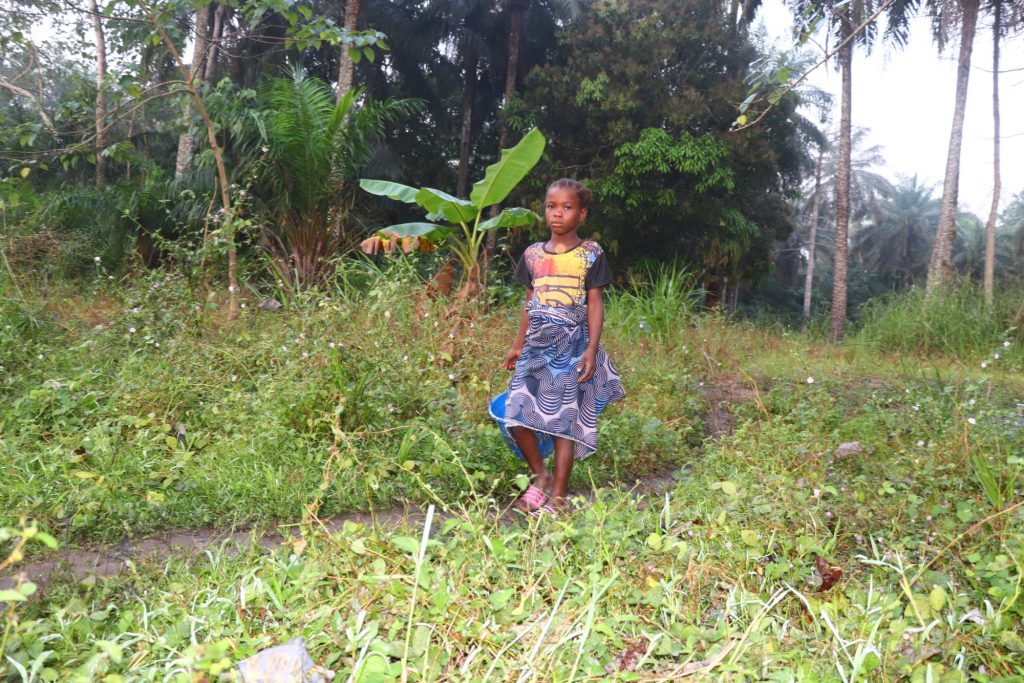
Zainab’s route to the swamp is bushy and remote. She fears the trip, especially when the sun is high in the sky because that’s when snakes are most active. And without adult supervision, who knows what other dangers might meet her while she’s walking all alone?
But even though the task frightens and exhausts her, fetching water is Zainab’s burden to bear for her family.
“I will make seven or eight trips [to the swamp] per day,” Zainab said. “Sometimes, when I return home, my peers will have already gone to school.”
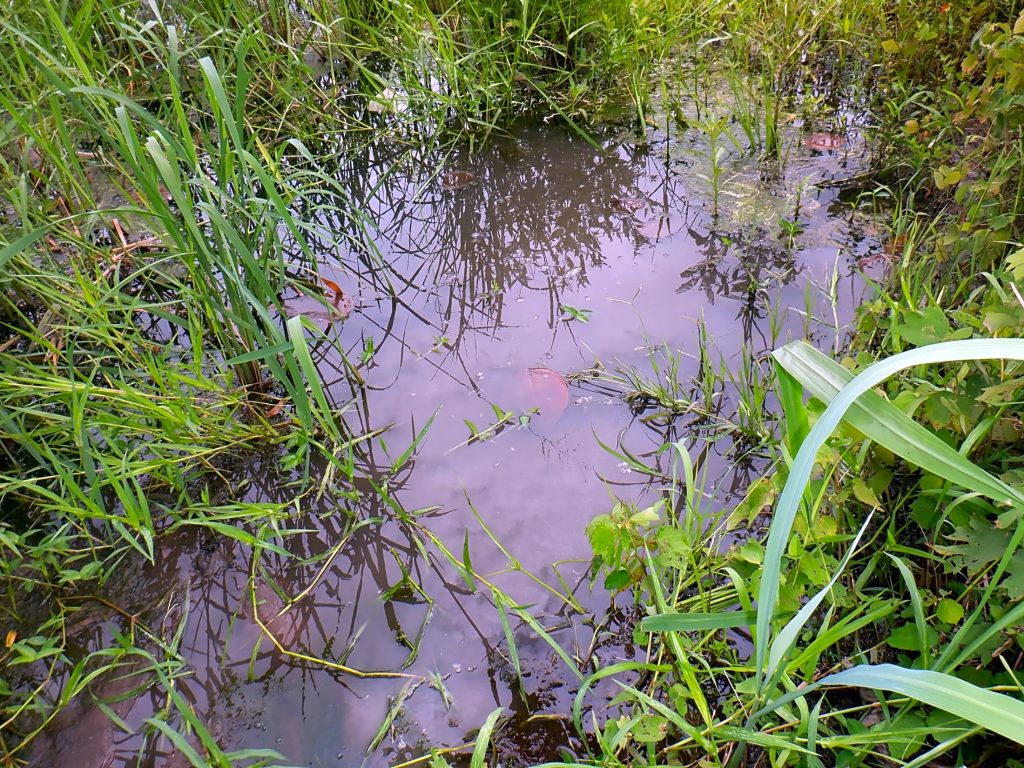
Once Zainab sets her family’s dishes to dry, she goes back to the swamp: this time, to wash up before school. She hates using the swamp water to bathe, as it gives her itchy rashes that plague her throughout the day. While she doesn’t know what kind of rash she has, one thing is certain: it won’t go away as long as she uses the stagnant swamp water for personal hygiene.
She’ll return to the water source one more time to fetch more water for her mother before she sets out for school. But her daily water-fetching duties are far from over.
During the dry season, Zainab also needs to collect water on her way to school, since that’s when her school’s water source dries up completely. The school administration asks the students to carry water with them to cover the school’s water needs.
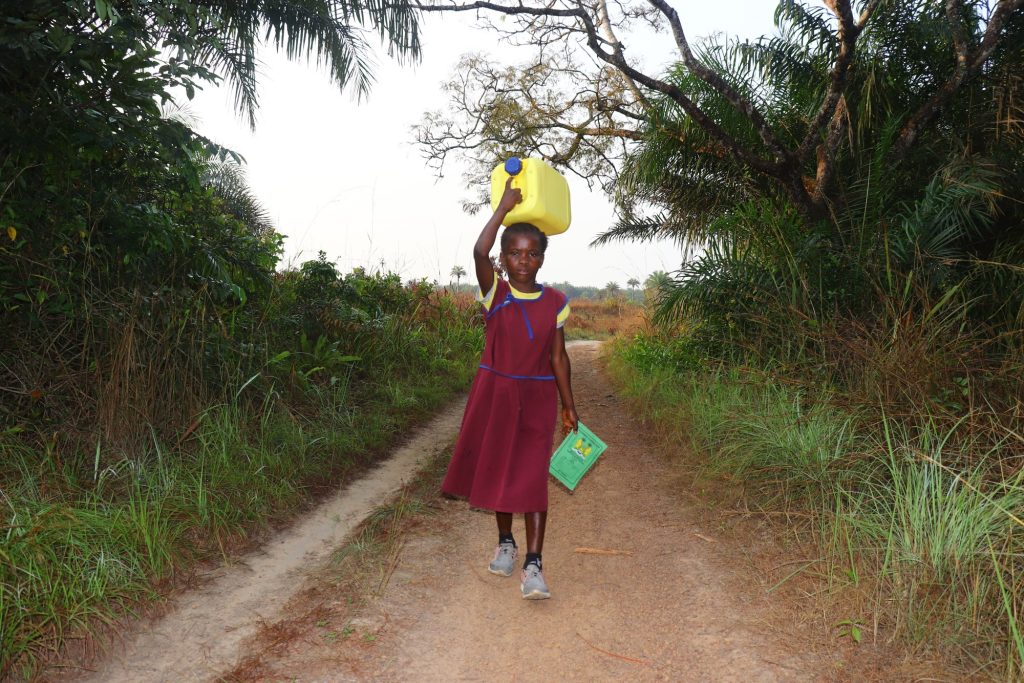
While Zainab is in school, it’s difficult to concentrate due to the rashes on her skin and the lack of water. Her school is dirty, dusty, and smelly without water to clean the classrooms and latrines. Last term, she failed her exams, which jeopardized her dream of becoming a teacher. But with so much of her time outside of school eaten up by water-fetching duties, trudging back and forth to the faraway swamp, she has little time or energy to study or complete homework outside of school hours.
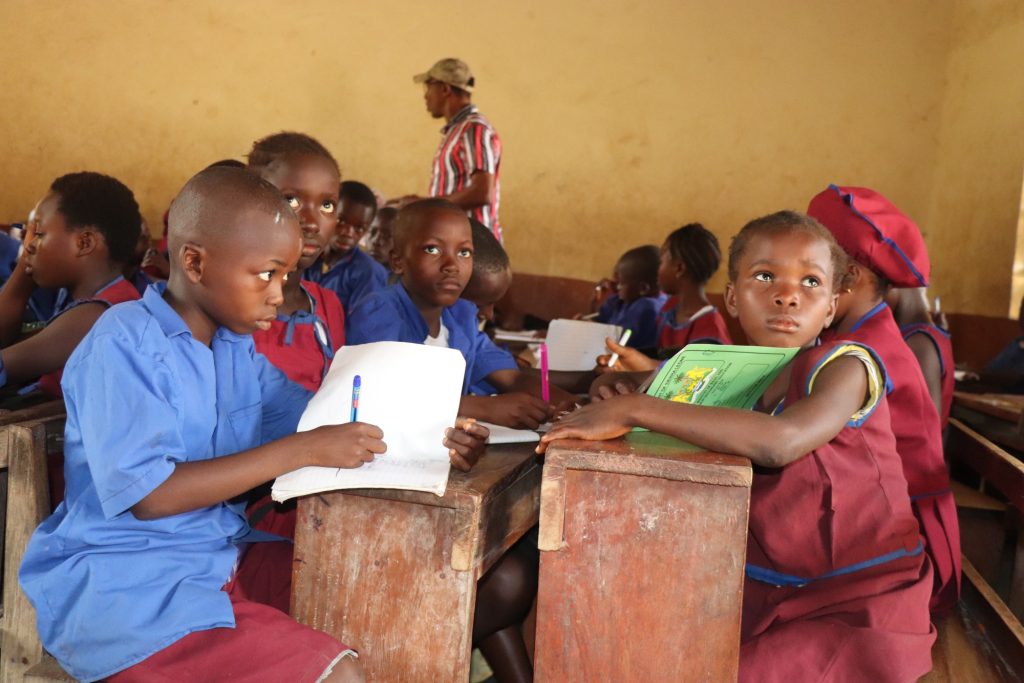
On her way home from school, Zainab fetches even more water to launder her school uniform for the next day. Sometimes, she asks her school friends to help her carry this trip’s worth of water because she’s so tired from her long day at school. They’re both boys, so they don’t have extra water-fetching duties to manage at home.
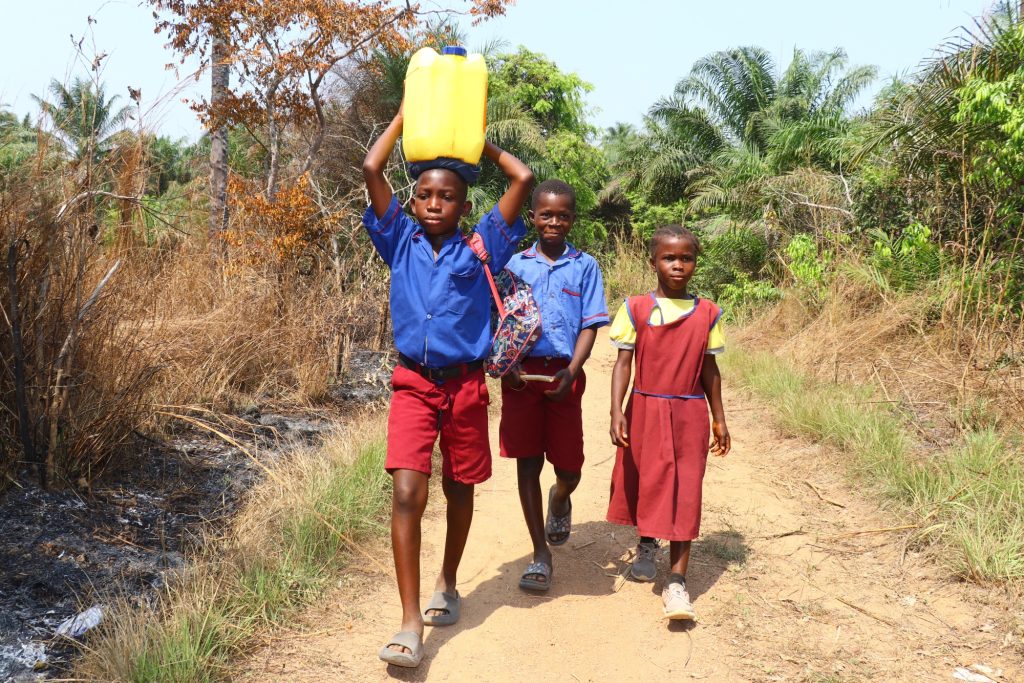
After she launders her uniform and hangs it to dry for the following day, it’s time to start preparing for dinner. She fetches another container of water for cooking, then helps her mother prepare the food, usually by pounding rice to remove the husks and sifting the husks out.
Once everyone has eaten, it should be time to relax and study. Instead, Zainab goes to the swamp for another pail of water to help her family water the plants in the family garden. She might need to return there multiple times throughout the evening to refill her bucket.
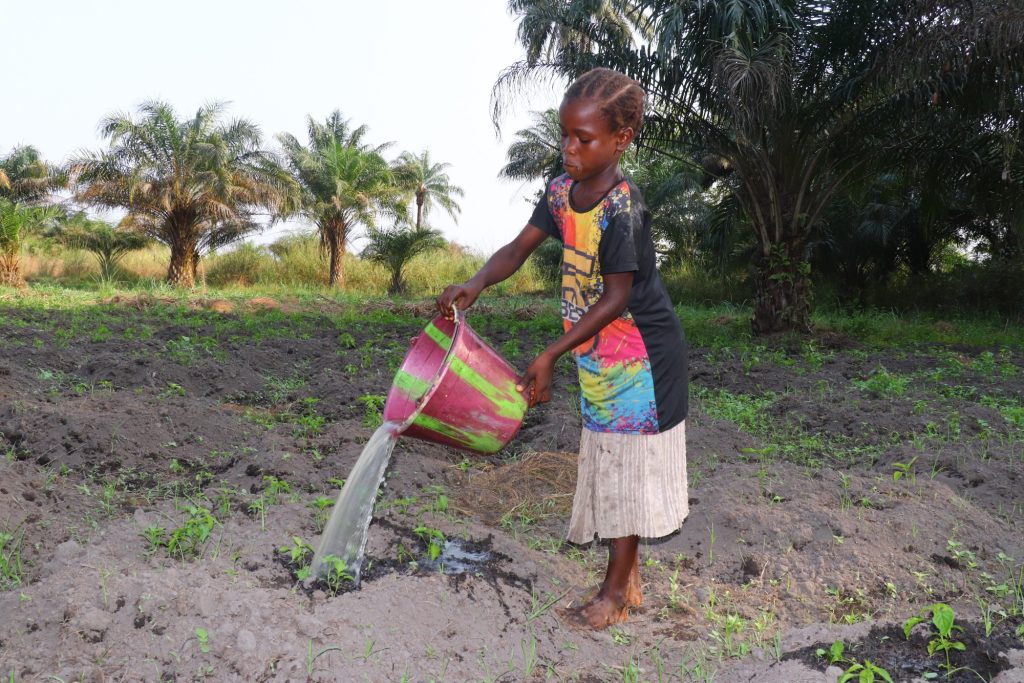
Finally, with the crops watered, Zainab fetches one more container of water for her father’s bath.
Providing Zainab with new, safe water sources will shrink her walking time from a half-hour to a minute or two, since the new borehole well in her community is to be constructed right at her doorstep. This will free up so much more of her time for studying and relaxing at home. And because we’ll also build another water source in the neighboring community of Kathoma, she won’t meet long lines at the water source — she’ll be able to collect water and go home within just a few minutes.
Not only will Zainab have more time to study, but she’ll also experience better health with clean water, leaving the painful rashes behind and allowing her to focus on what really matters: being a hopeful, playful child with opportunities ahead.
With a new water source at her school, Zainab will be better able to focus on her studies and her dreams for the future. No students will have to leave the school campus for water during the dry season. Students and teachers will be equipped with the water to clean their classrooms and latrines, providing a healthier environment in which everyone — including Zainab — can learn, dream, and thrive.
Watch the video below to hear Zainab tell her story in her own words.
Zainab’s story is one of countless girls who spend their days in search of water instead of chasing their dreams. And you can change that.
By donating today, you’re doing much more than just providing water. You’re giving Zainab and girls like her the chance to thrive in school, to build healthier futures, and to break the cycle of poverty. With your help, Zainab’s story can transform from one of struggle into one of hope and opportunity.
Home More Like ThisTweet